Posted on 9/29/2023
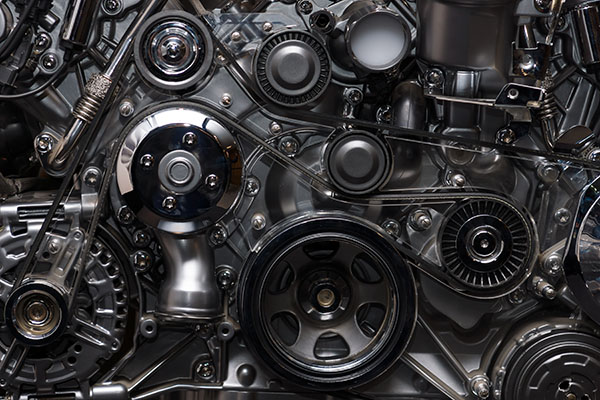
As you slide into the driver's seat, turn the key, and feel your car's engine roar to life, have you ever wondered about what actually happens behind the scenes? At the core of this automotive "ballet" lies a critical component: fuel injection, or, to be exact, the fuel injection system. Its importance is often overlooked, so let's take you on a spin through the fueling system and get you up to speed on the topic! The Essence of Fuel Injection Fuel injection, in its essence, is the lifeblood of your car's engine. It's the method by which a precise amount of fuel is delivered directly into the engine cylinders. Unlike older carbureted systems that relied on a mixing chamber, fuel injection systems have revolutionized how engines operate. How Fuel Injection Works So, how does this ingenious system work its magic? Let's break it down into simple steps: Air Intake: Your engine pulls in air through the ... read more
Posted on 8/31/2023
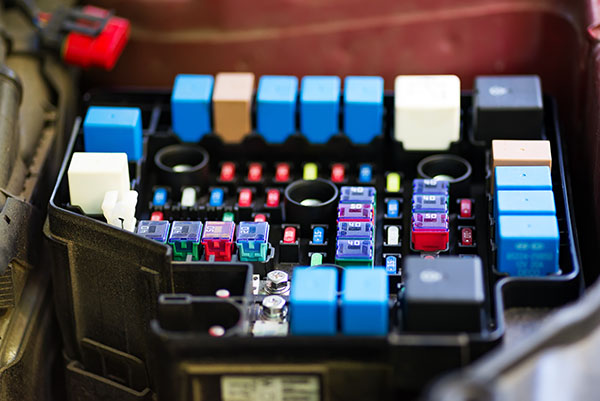
If you're experiencing issues with your vehicle's electrical functions, don't worry! It's possible that a faulty relay is to blame. Luckily, replacing a relay is a simple task that you can tackle on your own. You don't need to be a car expert to get the job done. With a few basic tools, some patience, and your owner's manual, you'll have your vehicle running smoothly again in no time. #1 Identify the Problem Relay Before you dive into the replacement process, it's crucial to identify the specific relay causing the issue. Consult your vehicle's owner's manual or the diagram on the relay box cover (or a trustworthy online source) to locate the relay associated with the malfunctioning component. For instance, if your windshield wipers aren't working, find the wiper relay. #2 Gather Your Tools To successfully change a relay, you'll need a few basic tools: a set of screwdrivers, pliers, and the replacement ... read more
Posted on 7/31/2023
.jpeg)
As responsible car owners, we understand the importance of regular maintenance to keep our vehicles running smoothly and safely. One common service offered by auto repair shops is the 30-point inspection. But what exactly does it entail, and is it a worthwhile investment? Let's clear things up, explain what it is, what it involves, and why it's necessary. What is a 30-Point Inspection? A 30-point inspection is a comprehensive evaluation of your vehicle's key systems and components. Skilled technicians perform a detailed analysis of 30 crucial areas, covering everything from the engine and transmission to the brakes, suspension, and electrical systems. The aim is to identify potential issues early on, preventing costly breakdowns and ensuring optimal performance. What Does a 30-Point Inspection Include? While the specifics may vary between auto repair shops, a typical 30-point inspection covers the following essen ... read more
Posted on 6/30/2023

Deciding to sell your car is a significant decision, and timing plays a crucial role in maximizing its value and finding the right buyer. While the ideal time to sell a car may vary depending on factors such as market conditions, demand, and personal circumstances, there are certain periods when you're more likely to achieve a successful sale. Here are a few situations in which we think it's a good idea to sell your car: When Your Car is in Good Condition Before Major Model Updates When Demand is High End of the Month or Quarter When Your Needs Change If you want to know why these specific situations are listed, continue reading because we explained every single one of them! When Your Car is in Good Condition The best time to sell your car is when it's in excellent condition. Take the time to address any necessary repairs, clean both the interior and exterior meticulously, and ensure that all maintenance is up to date. A ... read more
Posted on 5/31/2023
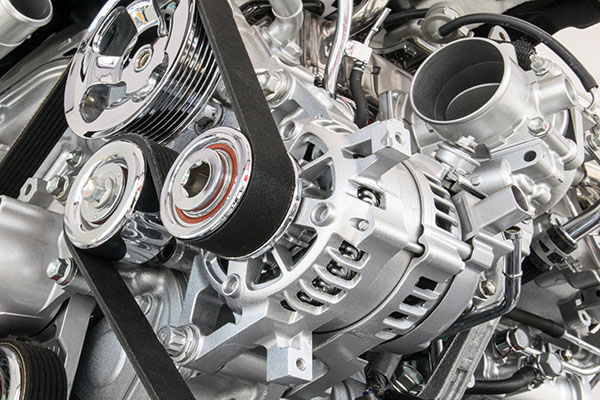
Have you ever asked yourself: why are only diesel engines used in heavy-duty equipment and towing vehicles? If you have, you are in the right place! Below we will explore the interesting facts that make the diesel engine the perfect pick for these exact tasks. Engine Construction One of the key factors is the way the engine is constructed and functions. In comparison with gasoline engines, they are very robust because of the way they ignite the fuel. Instead of a spark plug, diesel engines use compression to ignite the fuel and air mixture. This means that the engine block has to withstand immense amounts of pressure - meaning it's more durable and reliable. Power Output Another key difference is the way that power is output. Diesel engines produce a greater amount of torque than horsepower. This means that under heavy load, the tires can have enough grip and power to tow almost anything. This is solely because of the high energy density ... read more
Posted on 4/29/2023
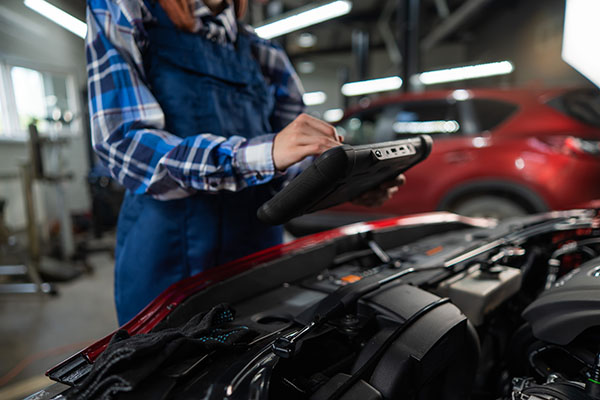
Car diagnostics is the method of using advanced tools and software to communicate with your vehicle’s onboard computer system and get useful information about how it works, what it does, and what problems it may have. Diagnostics are very important in modern vehicles to find and fix issues quickly and efficiently. You can look at them as plugging your phone into a PC and getting a message on whats wrong with it! During car diagnostic tests, several key areas of the vehicle are examined:Engine and Components: Checks for engine problems and issues with individual components like fuel delivery, ignition, and air intake. Transmission and Responsiveness: Evaluate the transmission system's performance and responsiveness, ensuring smooth gear shifting and clutch engagement. Brake Responsiveness: Tests the braking system's efficiency, checking for abnormalities in brake pressure and pad wear. Exhaus ... read more
Posted on 3/27/2023
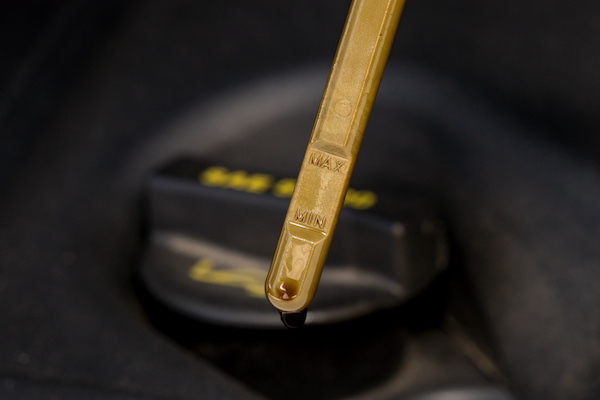
Motor oil is one of the most important parts of your vehicle that requires the most upkeeping. Engine oil keeps the engine lubricated and running smoothly. Periodically, you should check the oil levels and ensure they are at the appropriate level. Here are step-by-step instructions on how to check your motor oil levels at home: Step 1: Park the Car on Level Ground Before checking the oil, ensure that the car is parked on a level surface. This will provide an accurate reading of the oil level. Step 2: Turn off the Engine and Wait for it to Cool Let the engine cool down for a few minutes before checking the oil. This will allow the oil to settle, giving a more accurate reading. Step 3: Locate the Dipstick The dipstick is usually found near the engine and is marked with an oil symbol. Consult your owner's manual for the specific location of the dipstick. Step 4: Remove the Dipstick and Wipe it Clean Withdraw the dipstick and wipe it clean with a cloth or paper towel. Make sur ... read more
Posted on 2/24/2023
.jpeg)
Auto repair can be a complicated topic, and there are many misconceptions out there that can make it even more confusing. Here, we will debunk some of the most common auto repair myths to help you better understand your vehicle and keep it running smoothly. Myth #1: Premium gas is better for your car than regular gas. While it's true that some high-performance cars may require premium gas, most vehicles do not. In fact, using premium gas in a car that does not require it can actually harm your engine and waste your money. Myth #2: You should warm up your car before driving in cold weather. This myth may have been true for older vehicles, but it's unnecessary for modern vehicles. In fact, idling your car in cold weather can actually cause it to run less efficiently and waste fuel. It's better to start your car and drive it gently until it warms up. Myth #3: You should change your oil every 3,000 miles. While this used to ... read more
Posted on 1/31/2023
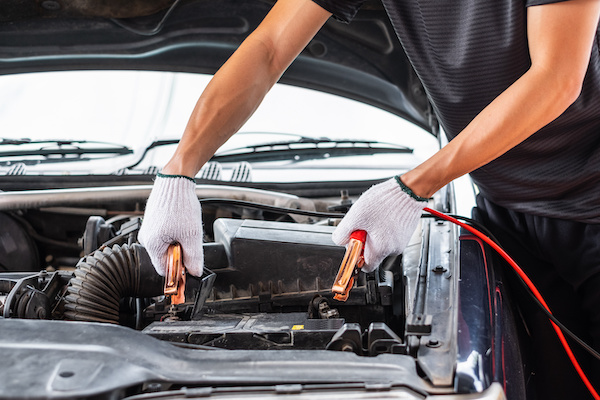
Harsh weather, such as extremely cold or hot temperatures, can increase the likelihood of an unexpected breakdown and disabled car. Without proper maintenance this winter, your vehicle may face some troubles. One of the most common issues that we see at Lighthouse Automotive is dead or drained car batteries. To avoid using every bit of juice left in your battery, we welcome you to our auto repair shop for a battery test and inspection. We can let you know how your battery is doing and when to expect a battery replacement. 5 Tips on How to Prevent a Dying Car Battery Avoid Battery-Draining Habits - Forgetting to turn off your headlights or leaving the door open with your cabin lights on may just seem like an “oopsies” at first. However, don’t be surprised if your vehicle struggles to start the next. Overloading your battery with multiple things at once, especially while idling, can kill your battery too. If you want to eliminate the risks of a dead batte ... read more
Posted on 12/22/2022

A cool and fresh breeze from your vehicle's window is welcome as you drive by some flowery boulevard. And so is some fragrant smell from your car's deodorizing components. An awful sulfur-like or rotten egg smell is a sign of a mechanical problem that you should solve for your vehicle to function well. Your vehicle's gas contains some sulfur in its hydrogen sulfide. The combustion of the gas in your vehicle's engine converts the hydrogen sulfide into sulfur dioxide, which often has no awful odor. So, what causes the awful sulfurous smell? Incomplete engine combustion and the cause of the sulfurous rotten egg odor The incomplete combustion of hydrogen sulfide in your vehicle's engine causes a sulfurous rotten egg smell, which indicates a serious engine malfunction. Such an engine failure is often linked to various system failures, including worn-out fuel filters, damaged catalytic converters, a damaged fuel pressure sensor, and overused transmission fluid. Damage ... read more